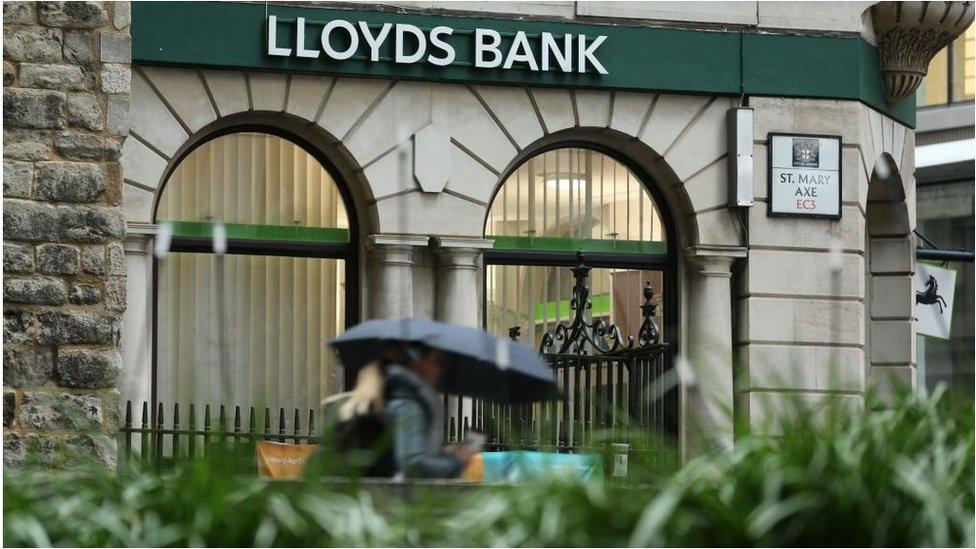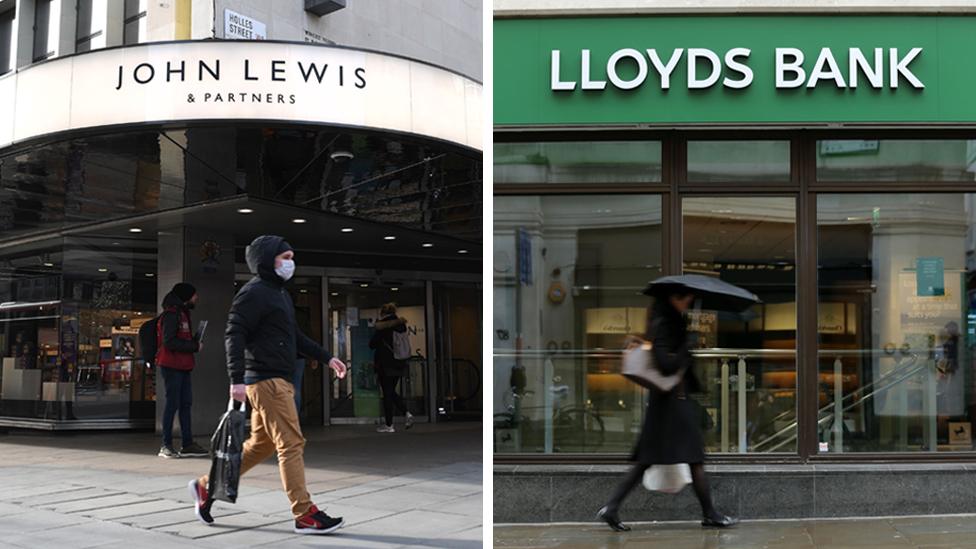Lloyds to close another 44 bank branches
- Published
- comments

Lloyds Banking Group is to close another 44 branches, blaming a lack of customers at the sites as people move to digital banking.
The move comes in addition to previous announcements and means a total of 100 branches will close this year.
Lloyds and Halifax branded branches in England and Wales are included in the latest closure programme.
The Unite union condemned the move, saying the bank was "walking away from local communities".
"The decision to further erode its presence within our communities is baffling," said Unite national officer Caren Evans.
"The closure of 44 more bank branches will deny our communities of essential services such as access to cash and experienced highly trained staff. A local ATM is not a suitable alternative to a staffed bank branch."
The bank said a third of the branches which were closing were located in large towns and cities, with another branch nearby.
Its retail director, Vim Maru, said there had been considerably fewer transactions at these branches in the last five years.
"Like many businesses on the high street, we must change for a future where branches will be used in a different way, and visited less often," he said.
Which branches will shut?
The branches will close between September and November, with 29 Lloyds Bank and 15 Halifax branches to go.
The locations of the Lloyds branches are: Bournemouth Westbourne, Cardiff Rumney, Leeds Horsforth, Northwood, Stony Stratford, Church Village, Morley, London Regent Street, Oakham, Brixham, Quinton, Mildenhall, Berkeley Square, Faversham, Brighton Preston Circus, Gants Hill, Halstead, Holsworthy, Henley-on-Thames, Hendon, Kempston, Towcester, Kentish Town, Tadley, Bromborough, Cheltenham Bath Road, Haslemere, Newport Maindee, and Sedgley Dudley.
The Halifax branches to shut are: Manchester Cross Street, Plaistow West Ham, Chesham, Chertsey, Fleet, Harpenden, Potters Bar, Kenilworth, Hinckley, Market Harborough, Upminster, Rugeley, Cheshunt, Pinner, and Chesterfield Central Pavement.
Following the closures, the group will have 779 Lloyds Bank branches, 560 Halifax branches, and 184 Bank of Scotland branches.

New bank hubs, like this one in Essex, are being trialled where branches have disappeared
Hundreds of branches across the UK's banking network have been closing. The trend may be accelerated by Covid, as some people were forced to bank digitally for the first time during lockdown.
This has added to the debate about the future of bank branches and cash.
A series of trials are taking place, designed to find ways of ensuring consumers and businesses have access to cash, and speedy deposit options, when branches are closing. They have included shared bank hubs, run by the Post Office, which also have staff from each of the major High Street banks visiting once a week.
Martin McTague, from the Federation of Small Businesses, said the latest bank closure announcements had created "a wave of disappointment" across communities.
"Bank branches are not only critical to those who still depend on cash - often society's most vulnerable, they also serve as a draw for shoppers, meaning footfall for surrounding small businesses," he said.
He called on the government, Bank of England, High Street lenders, independent ATM providers, regulators and the Post Office to ensure the infrastructure was in place to allow businesses to climb out of the Covid-created economic slowdown.
- Published30 November 2020

- Published4 November 2020

- Published28 April 2021
